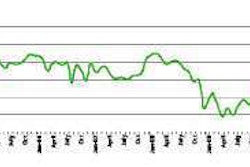The means are part of the ends

Rep. Joe Barton (R-Texas) caused quite a stir last month when he apologized to BP for the White House’s “shakedown” of the company to create a $20 billion fund to pay claims resulting from the Gulf of Mexico oil spill. Apparently some folks objected to Barton’s sympathy for BP given the damage the spill has caused to the Gulf Coast’s economy and environment.
As offensive as Barton’s comments sounded to many, he has a legitimate point. “There is no question that BP is liable for the damages,” he said in a June 17 congressional hearing. “But we have a due process system where we go through hearings, in some cases court cases, litigation, and determine what those damages are and when those damages should be paid.”
For various reasons, government agencies sometimes cut corners in order to achieve desirable – or at least widely popular – outcomes more quickly. It happens even at the Federal Motor Carrier Safety Administration, albeit with far less attention than the Gulf oil spill. For example, a federal appeals court invalidated FMCSA’s 2005 revision to the hours-of-service rules because the agency did not provide an opportunity to comment on a change in how it analyzed crash risk.
At least twice this year FMCSA has used regulatory guidance on an issue it said it later would address again through the rulemaking process. First, the agency modified its interpretation of “additional equipment and accessories” in Sec. 390.17 of the federal motor carrier safety regulations to prohibit texting on handhand or wireless electronic devices – even though the target really was an activity, not a piece of equipment or an accessory. Two months later, the agency proposed a regulation to ban texting by commercial motor vehicle drivers explicitly.
The ever-changing policy on tracking data is unsettling.
Then last month, FMCSA revamped its policies and guidance related to supporting documents used to verify driver logs. In 1997, the Federal Highway Administration, which regulated motor carriers at the time, had published a list of more than 30 types of supporting documents it said that carriers needed to retain. Although this technically was guidance, FMCSA has treated it as a requirement. Last month’s policy change drops six types of documents that FMCSA says are outdated or rarely used and eliminates the requirement for another 15 types of documents – provided that the carrier is using “electronic mobile communication/tracking technology” that meets certain specifications.
The June 2010 policy supersedes a controversial December 2008 enforcement policy declaring that FMCSA now considered the data produced by such technology to be a supporting document that carriers must retain. The 2008 policy in turn had reversed a 1997 policy that restricted use of such data in a compliance review so as not to discourage adoption of advanced technologies. What last month’s guidance really does is offer carriers a carrot – substantial relief from a paperwork burden – to go with the stick of having to retain the data from tracking systems.
In announcing the policy change, FMCSA confirmed plans to propose a regulation later this year to address supporting documents and an expanded electronic onboard recorder mandate. So why change the policy now? The agency didn’t mention the American Trucking Associations, but clearly it is responding to ATA’s lawsuit to compel regulations governing supporting documents that are about 14 years past a congressional deadline. FMCSA and ATA have been discussing a settlement for several months, but as of late last month, they had not settled.
FMCSA’s new approach to supporting documents is welcome but insufficient. As the December 2008 policy shows, carriers cannot rely on assurances that are reversed so easily. Regulations can change too, but at least everyone can review proposed changes and comment on them. The industry needs to keep pressing FMCSA for hard-and-fast regulations governing supporting documents. n
Avery vise is Editorial Director of Commercial Carrier Journal.
E-mail [email protected].









